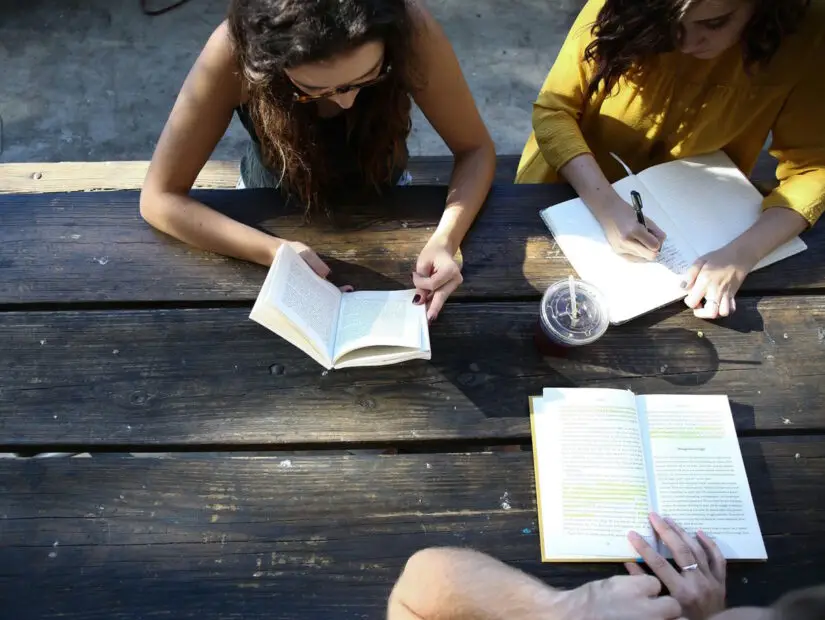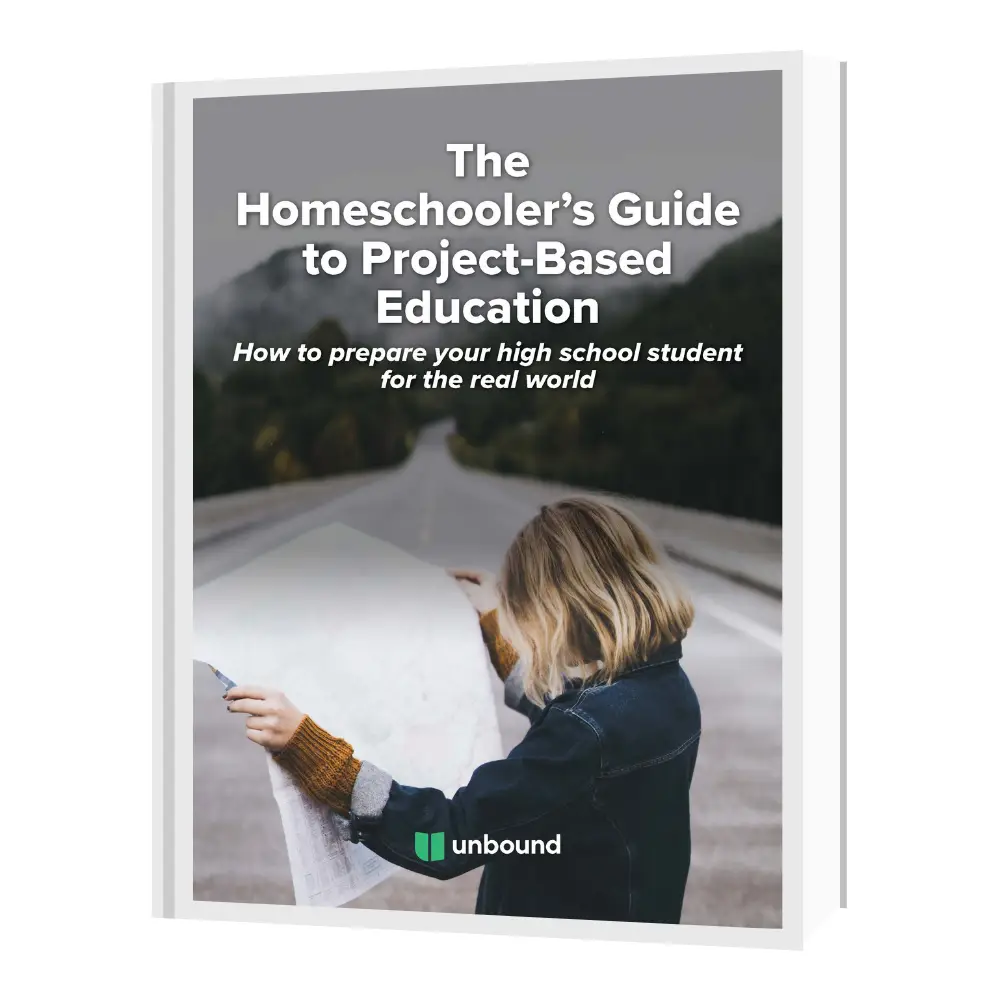How to Develop Practical Skills in High School

Last month, I mentioned research done by the Populace think tank that focused on Americans’ priorities for K-12 education.
The findings of the research are quite remarkable actually. Out of all the potential things that Americans want education to develop in their students before they graduate high school, college preparation was ranked #47. (Populace lists 57 total priorities in their survey.)
While college preparation didn’t top the list, here are a few things that did. These are things that American families want to prioritize in their students’ K-12 education: develop practical skills like financial management, making their own appointments, and cooking their own meals. Other priorities include critical thinking and problem-solving. Finally, character qualities like integrity were also prioritized.
What does this tell us?
Well, on one level at least, it tells us that families today are more interested in raising children who are equipped with the practical skills, core competencies, and character traits that matter in the real world.
Unfortunately, colleges and universities today are not providing adequate training for these kinds of practical concerns. One can very well graduate with a four-year degree and still be at a loss for how to cook a meal or balance a budget.
The future of education in your inbox.
Get productivity tips, commentary, and Unbound updates sent to you!
So how are students in high school going to learn these kinds of practical skills?
At Unbound we are passionate about a form of learning called project-based education. That’s a big fancy phrase for the idea of learning by doing. In other words, if you’re after practical skills like managing a budget, the best way to learn is to actually build and maintain a budget.
There are a number of ways that you can introduce project-based education into your young adult’s learning. We have plenty of ideas to get you started. In this article particularly, I’ll cover a step-by-step approach to helping your young adult develop practical skills using the project-based education model.
1. Identify the need.
First things first.
You’ll want to identify practical skills that your student needs to develop. Some things come naturally to some students and others don’t. If, for example, you have a young adult who is a culinary artist, they don’t need training on how to cook for themselves. Likewise, if your student is a spreadsheet wizard, a budget may come naturally to them.
So the first step is to identify which practical skill your student needs to develop. Then you can move forward with filling that gap.
2. Frame it as a project.
Here’s the beauty of project-based education: it doesn’t require lesson plans, textbooks, or tons of homework. It just requires a project plan and good old hard work.
Let’s take budgeting for example.
You’ve determined that your student needs to learn the important skill of managing their money and maintaining a budget before they graduate from high school. (That’s step one, above.) Now it’s time to frame it as a project. A straightforward project would be to actually create a monthly budget and commit to maintaining it for at least one month.
Project-based education isn’t built on textbooks or lectures. But that doesn’t mean your student can’t use other resources to learn about the budgeting process. It simply means that the learning emphasis is on the practical application.
So maybe your student will find a YouTube video about how to create a monthly budget. Or perhaps they’ll find a template online that they can adapt for their own use.
3. Plan and complete the project.
Once you have the project defined (e.g. make and maintain a monthly budget), it’s time to actually plan and complete the project.
Like I mentioned above, your student can find resources that will help them finish their project. They can study various budget structures. But the learning ends up being unactualized if nothing ever actually happens. It’s important to plan but plans by themselves don’t accomplish anything.
For our budgeting example, the student will need to make a list of monthly expenses. They will need to determine their monthly income. And they’ll need to create some way of tracking expenditures. Your student’s budget may be complex or it may be extremely simple. The point is that by the end of the project, your young adult has a monthly budget.
If the definition of the project includes maintaining a monthly budget, then the project isn’t done. Your student will need to spend a month tracking their expenses and staying on track with their budget.
4. Review and move forward.
This last step is critical!
Your student should review their project once it’s completed. They should note any problems and how they overcame them. They should reflect on what they learned through the project. You’ll also want to determine if there’s a next step or a new project that can extend the learnings your student received.
Let’s go back to the budgeting example again. After your student completes their project they should sit down and review what they learned. They might write down what they learned about their own money management tendencies. Perhaps they’ll decide they want to keep practicing the skill of budgeting. If that’s the case, then defining a new project might be good. Maybe they’ll set a goal to maintain a budget for six months or keep their expenses under a certain amount for a month. Whatever it is, their new goal should frame a new “project”.
Project Examples
Below are a couple of project examples based on practical skills that students in high school can learn through project-based education. These are just examples. Your student may decide to plan their project differently.
1. Create a weekly schedule.
Practical Skills: Time management, calendar management
Project Goal: Create a weekly schedule with appointments, work hours, and study sessions in a weekly planner or similar tool.
Steps:
- Define the project.
- Plan the project. (Could be as simple as setting a time in the week when your student will sit down and make their schedule.)
- Choose a planning tool. This could be a weekly planner in paper form, a digital planner, or a notebook. Whatever works best for your student.
- Write down all appointments and social commitments. Your student should block out the various outside commitments they have for the week. (E.g. dentist appointment on Tuesday afternoon, youth group on Wednesday night, etc.)
- Write down the work schedule. If your student works a job, they’ll need to block out the hours they are working in the week.
- Write down blocks of time for school work and other chores. Let’s say your student works a part-time job in the afternoons on Monday, Wednesday, and Friday. They have their mornings free to work on school and other projects. They should make note of this in their weekly schedule.
- Review the project and determine next steps. What did your student learn from the project? What can they do next to keep their momentum going?
2. Learn how to cook.
Practical Skills: Cooking, independence
Project Goal: Cook a meal for yourself one night a week for one month.
Steps:
- Define the project.
- Plan the project. (Set days of the month when the student will cook for themselves. They could even plan out the menu ahead of time.)
- Follow a recipe. Depending on your student’s situation, you could also include getting ingredients from the grocery store as part of this project. In that case, your student will want to read the recipe ahead of time to know what ingredients they’ll need.
- Cook the meal.
- Clean up after cooking.
- Review the project and determine next steps. Are there skills that need to be practiced more? Mistakes that should be noted and avoided in the future?
Project-Based Education & Practical Skills
These examples are meant to give you and your student inspiration for utilizing project-based education to teach real-world practical skills. These kinds of skills are the foundation of all our programs at Unbound. We seek to train students for life in the real world and that often looks like a lot of practical matters like budgets, schedules, and cooking their own meals!
We’ve created a resource on project-based education for high school students that you can download for free here. This resource includes over 50 project ideas and a step-by-step guide on how to apply project-based education in your student’s high school studies.
Ascend, our flagship program, teaches students how to live resilient lives, trains them in practical life skills, equips them to identify and own their purpose, and guides them in building healthy relationships.
To learn more about Ascend, click here. You can also get in touch with our team directly by scheduling a free consultation.




